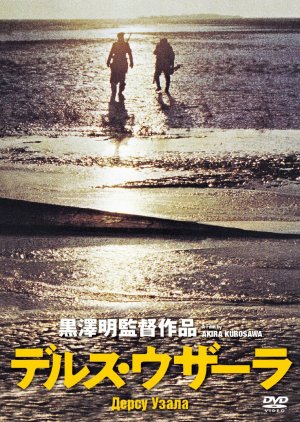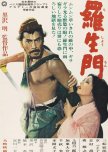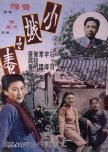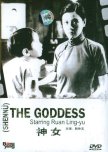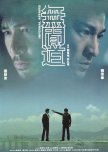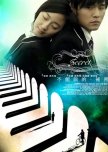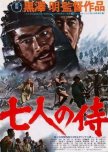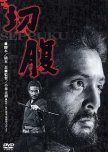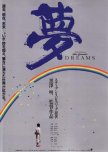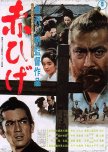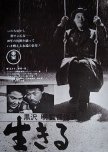
This review may contain spoilers
"Man is too small when faced with the vastness of nature"
Dersu Uzala was based on the real lives and friendship of Dersu Uzala and Vladimir Arsenyev in the Siberian wilderness during the early 1900's. The impressive film about friendship won an Academy Award for Best Foreign Language Film in 1976. Aside from its famous director, Kurosawa Akira, you aren't likely to recognize any of the names in this Soviet-Japanese film, but don't let that deter you as the performances were all first rate.The film begins with Capt. Arsenyev and his men doing a topographical study of the Ussuri Region. Local hunter, Dersu, enters their camp having followed them for much of the day. The next thing he knows he has become their guide. Dersu is wise, kind, and generous as well as being a skilled hunter. The soldiers are largely unaware of the world he sees and hears around them. "Got eyes but don't see." At first the men are amused at his views, such as fire, wind, and water being alive and "strong men" to be wary of. It doesn't take long for them to come to respect him and trust his guidance. He also teaches them compassion for people and animals in ways they had not thought of in his special lessons on wilderness etiquette.
Arsenyev learns the hard way what disregarding Dersu's advice means in the life and death world of winter in the dangerous world. The two men slowly build on their trust and respect to develop a deep and abiding friendship. The movie could have comfortably ended at the 70-minute mark, and I did find the first half more compelling. When Arsenyev returns to the wilderness he finds his friend older, but largely unchanged. They race to each other and embrace as if soul mates and maybe in some ways they were. Only after an incident with a tiger, do Dersu's facilities begin to decline. The aged tracker and hunter finally relents, acquiescing to his friend's invitation to come live with him in town. Dersu understandably struggles to adapt to the confinement of city living. The film hauntingly ends much as Arsenyev's 1923 memoir.
This film is one that will find itself with a divided audience. There was almost no conflict which could be a deterrent for many, especially with a 140-minute running time. The characters found themselves in few perilous moments or facing life altering events. At the same time, it was an expedition into the beautiful world of the Siberian taiga and the development of a devoted friendship. People from disparate places came to understand each other. The film could almost fall into a slice of life travel drama with its languid, graceful pace.
Kurosawa's signature style appeared throughout the film. An encounter with a tiger leads to a mystical moment for the tracker, a seemingly innocent encounter that had profound effects on his psyche which reminded me of other Kurosawa characters affected by surreal events. Kurosawa's own particular blood red sky and sun also reflected in the ice was used in several scenes, reminiscent of Dodesukaden's sky. A faint rainbow appeared at a hut in the misty woods as happened in several of his films. At times, Kurosawa's signature winds and fog obscured the scenery, heralding in moments of significant changes. The film was beautifully shot in the Russian wilderness and accompanied by an elegant musical score. Rivers, forests, snowy marshes, and a frozen lake shared the screen with actors trudging through and over them. Despite the exquisite landscapes and evolving seasons, Kurosawa kept the story focused on the two men. In one particular segment Dersu and Arsenyev become lost when returning from a frozen lake. At Dersu's bequest they desperately cut the tall marsh grasses in a blinding wind storm for a makeshift shelter in order to survive the bitterly cold night. This scene with few words was stunning and emotionally gripping.
George Lucas has eluded that Yoda may have been loosely based on Dersu. With Dersu's broken Russian and oneness with nature it would be an easy leap in logic. At one point when Dersu was in danger after saving the rest of the men, he had to orchestrate his own rescue advising the men how to accomplish it. While his abilities seemed almost magical to the city folk, his skills were honed over a lifetime living in the harsh conditions needing to always be aware of his surroundings to survive. I believe he would have agreed with Yoda, "Do or do not, there is no try."
Rather than a man against nature theme, the story advocated man living peacefully and reflectively with nature and other people. Nature may be unforgiving, but it was also possible to learn from her and receive her gifts. Kurosawa showed not only the best of humanity but also the cruel face of humanity as well in the way heartless men treated animals and other humans. Though he touched on several subjects the overriding core of the film and its main focus was the friendship of two men from different walks of life who bonded in the wilderness.
It would be hard to overstate the skill Kurosawa used in the making of this film. The raw, scenic landscapes seemed to have personalities of their own, much as Dersu believed. Though the story was simple it was not simplistic. The unbreakable friendship of Dersu and Arsenyev resonated deeply with me. Even at over 2 hours long, I would happily watch this film again.
6/6/23
Was this review helpful to you?

